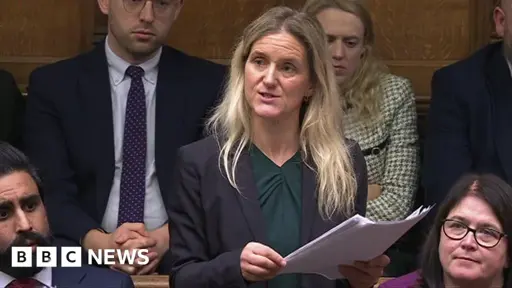I was reading about this on the BBC feed and it looked like the Conservatives (right wing) were more in favour of this than Labour or Lib Dems(left wing). Not what I was expecting. Most of them seemed to take issue with the legal protections in place to stop people being coerced into ending their lives but some also seemed to be prioritising the family over the terminally ill.
The legal protection in this case being a literal high court judge having to check the person is not being coerced and sign it off. That’s a pretty high bar in my opinion!
Trying to get on the Canada-type organ money
Most people I know (me included) regard this as a good thing. We treat pets better than we treat people.
There are issues with the NHS, sure - but they don’t, and shouldn’t, stop us bringing dignity and choice to people’s deaths.
The worry is people being pushed into it by family who don’t want to care for them. Or just people who feel like a burden.
Before it becomes law I’m sure the protections will be made iron clad but it is a real worry.
My nan is having to sell her house to pay for the care home. I can imagine people wanting to get their relatives out of the way to avoid losing their inheritance.
I think I’d rather die earlier with some good health and with dignity than waste away in a care home.
Or just people who feel like a burden.
Except we don’t “just” feel like a burden, we are very deliberately made to feel that way by ableist capitalism, with the help of the state, and a multi-trillion pound media industry that pushes that narrative relentlessly because we’re the easiest scapegoat to blame the empty tax pot and other ills of society on, to distract from those really to blame.
The “this is great, I’d rather die than be disabled” many abled people react to this legislation with is part of that ableist narrative, because they can see, even if they won’t register it consciously to themselves, how badly society treats disabled people, and realise it’d be easier for them to opt out if they hypothetically became disabled (which is significantly more likely than them winning the lottery, for example), than to try and fix society for those already there.
(to be clear, I agree with you and am glad to see someone else who isn’t thrilled about this, and I’m just adding to your point because so many people completely neglect to take these factors in to account)
“this is great, I’d rather die than be disabled”
Except, the bill is about people on end of life pathways having dignity in their deaths, not anyone choosing to just end it because they don’t like their circumstances.
How society treats disabled people is terrible, I agree, but that isn’t what this bill is about
Is it really?
I’ll say it again:
Maybe try listening to the people it actually impacts?
One of them is right here telling you you’re wrong, and I’ve provided more than enough information for you to start understanding why. All you’re doing by refusing to listen, is reinforcing my point - you’re less concerned with how this will impact the living, existing, very real and already hugely marginalised and abused people it is aimed to “help”, and instead are only concerned with what is convenient for you to see within your own limited understanding of the legislation, the hostile environment in which it is being enacted, as well as your situation now, and hypothetically in the future.
So for a third and final time:
Maybe try listening to the people it actually impacts?
It doesn’t impact you, your viewpoint it entirely irrelevant. Nobody who is disabled will suddenly be euthanised, and the links you provided are summed up as “we want more dignity, fuck everyone else until we get ours” which i don’t respect.
As someone with lived experience of a family member who would’ve benefitted from this bill as I watched them take 3 months to die, forgetting who their own family members where, constantly being given incredibly strong painkillers, spending hours in convulsions as the tumors ate away at their brain, I can confidently say you are the one who should listen to people who this actually impacts, while they’re still able to advocate for themselves.
You’re actually straight wrong here. This is about terminal illness not disabilities.
Having less than 6 months to live is a requirement.
Calm yourself down and take your own advice and read it.
And before you lash out about me not understanding I have Crohn’s disease and type 1 diabetes. I am disabled and it affects my quality of life greatly.
I’m not sure if you’ve had to endure the torture that is watching someone die a slow and painful death but there is no dignity in it, only suffering. Allowing people to avoid 6 months of that is not a bad thing if they want to avoid it.
Most people I know
Maybe try listening to the people it actually impacts?
https://www.disabilityrightsuk.org/news/dr-uks-statement-passing-assisted-dying-bill
https://www.disabilitynewsservice.com/?s=assisted
https://www.thecanary.co/uk/news/2024/11/28/assisted-dying-bill-letter/
Reading these links, I don’t really understand why, for example, Disability Rights UK are against the assisted dying bill. They don’t say what’s wrong with the bill, they just say it’s bad. This bill is aimed at terminally ill people not disabled people, and its not clear from those links what the issue is.
The only links of yours that do explain in detail the issues with the bill, are relating to an unrelated Scottish bill.
I agree . It’s overdue, but it’s an impossibly delicate matter. People indeed of this option are very vulnerable.
The only reason I can see to be against this is because of religion, as long as safeguards are put in place it should be a non issue. Switzerland has been doing it since 1942
The nub of the matter is that the decision will rest with people who are frequently vulnerable and is guaranteed to attract coercion.




